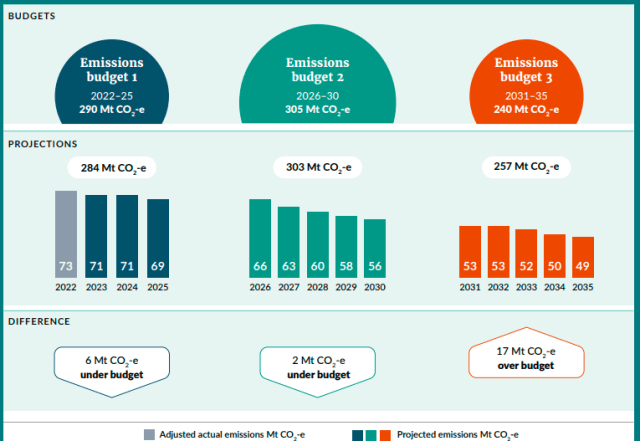New Zealand, which is on track to meet its climate change goals for 2022 to 2030, has started drafting its action plan to achieve its 2035 emissions reduction target, according to a discussion document published by the Ministry for the Environment on Wednesday.
The document, part of New Zealand’s second emissions reduction plan, forecasts carbon dioxide emissions in the five years leading up to 2035 will exceed the target by 7 percent unless significant changes are implemented. This shortfall is attributed to several factors, including the new center-right government’s rollback of climate policies established by its center-left predecessor and a reduction in commercial tree planting.
Additionally, the decision by private owners to continue operating New Zealand’s aluminium smelter, a major industrial emitter in a country with limited heavy industry, is contributing to the challenge, Reuters news report said.
Despite these concerns, Climate Change Minister Simon Watts expressed optimism about achieving net zero emissions by 2050. “Our success will rely on our ability to sustainably transition to a low-emissions economy,” Simon Watts stated in the plan’s foreword.
The new plan, covering 2026 to 2030, proposes several initiatives to boost the country’s climate efforts. These include expanding the electric vehicle charging network, investigating carbon capture and storage technologies, increasing renewable energy production, enhancing public transport, improving waste management, and revitalizing the emissions trading scheme.
Policies to reduce emissions across five sectors
The second emissions reduction plan will identify targeted actions to reduce our emissions across five key sectors.
Energy
Present actions
# Enabling accelerated investment in renewable energy generation and electricity networks by improving the resource management system.
# Enabling carbon capture technology.
What’s coming
# Doubling renewable energy by 2050.
# A smarter electricity system which gives New Zealanders the ability to change how and when they use power.
Transport
Present actions
# Working with Sustainable Aviation Aotearoa, which is a group of private sector and government agencies supporting the decarbonisation of the aviation sector.
What’s coming
# Enabling a network of 10,000 public electric vehicle (EV) charging points by 2030 and facilitating private investment in EV charging infrastructure, subject to a cost–benefit analysis.
# Reviewing regulatory barriers to zero-emissions heavy vehicle uptake.
# Working with other countries on sustainable aviation fuels and low- and zero-carbon shipping on key trade routes by 2035.
# Supporting public transport in key areas
Agriculture
Present actions
# Reviewing methane science and target.
# Accelerating the development of tools and technologies to reduce on-farm emissions.
# Developing on-farm emissions measurement for implementation by 2025.
What’s coming
# Recognising more on-farm activities that remove greenhouse gases from the atmosphere.
# Implementing a fair and sustainable pricing system for agricultural emissions by 2030.
# Accelerating the development and commercialisation of emissions-reduction tools and technologies.
Forestry and wood processing
Present actions
# Restoring confidence and credibility in the New Zealand Emissions Trading Scheme to give certainty to the market.
What’s coming
# Managing on-farm conversions to forestry through the New Zealand Emissions Trading Scheme.
# Boosting wood processing by improving the consenting framework, supporting commercial investments, and getting the system settings right to be building with wood.
Waste
Present actions
# Incentivising efficient landfill gas capture through the New Zealand Emissions Trading Scheme.
# Investing a portion of the waste disposal levy into New Zealand’s waste infrastructure.
What’s coming
# Targeting further investment in New Zealand’s resource recovery infrastructure and systems (including construction and demolition waste).
# Investigating improvements to organic waste disposal and landfill gas capture.
Opposition Green Party co-leader Chloe Swarbrick called for more credible solutions, emphasizing the need for greater investment in public transport, energy efficiency, and overall decarbonization to meet climate targets.
The public is invited to comment on the plan before it is finalized, ensuring a comprehensive and inclusive approach to New Zealand’s climate strategy.
Baburajan Kizhakedath

